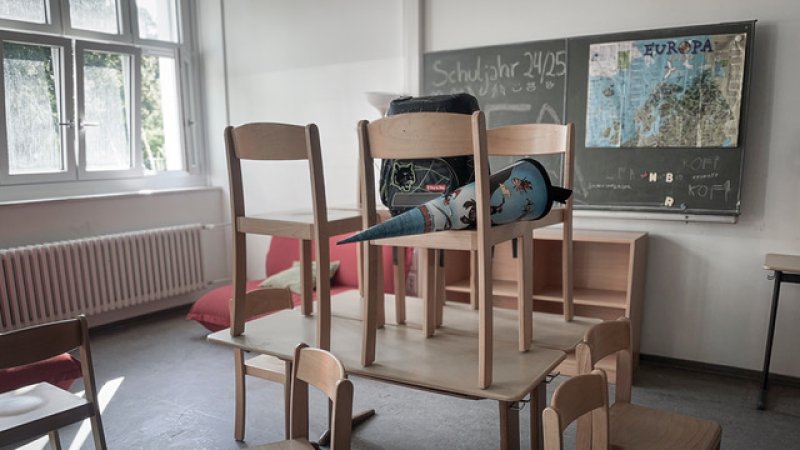In Rhineland-Palatinate, there are three options after leaving the primary school: Realschule plus, integrierte Gesamtschule or Gymnasium.
The primary school takes 4 years to accomplish in Rhineland-Palatinate.
After elementary school, parents decide which school their child attends next. The staff at primary school help parents by providing them with a recommendation. There are three options here:
- Realschule plus
- Integrierte Gesamtschule
- Gymnasium
The Realschule plus starts with the 5th grade. Your child will be able to obtain Berufsreife (Hauptschulabschluss) after the 9th or 10th grade or the Mittler Reife (the qualifizierter Sekundarabschluss) after the 10th grade.
There are two types of Realschule in Rhineland-Palatinate: In a kooperative Realschule children are separated into two classes after spending two years in the so-called orientation level, i.e. in the 6th grade your child has to decide if he/she wants to graduate with Berufsreife or Mittler Reife. In a Integrierte Realschule, all students learn together, regardless of the school-leaving certificate which they plan to obtain. So your child does not have to decide about graduation certificate from early on. Berufsreife or Mittler Reife can each qualify a student for starting vocational training. Children with Mittler Reife and good grades can also switch to a Gymnasium.
The Integrierte Gesamtschule starts with the 5th grade and ends after the 9th, 10th or 13th grade. In an Integrierte Gesamtschule, all students learn together regardless of the school-leaving certificate they plan to obtain. Here your child can acquire the Berufsreife (Hauptschulabschluss) after the 9th grade, the qualifizierten Sekundarabschluss I (Realschulabschluss) after the 10th grade and the Fachabitur or the Abitur after the 13th grade. Any of these four school-leaving certificates can qualify your child to start a vocational training. With Fachabitur and Abitur, your child can also enter a university of applied sciences ("Fachhochschule") or regular university.
The Gymnasium starts with the 5th grade and ends with the Abitur at the end of 13th grade. In a Gymnasium, studnets are expected to work hard and be very diligent. Those who leave Gymnasium after the 9th or 10th grade are often automatically granted -at least- Berufsreife or qualifizierten Sekundarschule I. With an Abitur, your child can go for university education or start vocational training.
Once you move out of the initial reception centre, your child has to go to school. You will receive a letter from the school responsible for your child with all the necessary information. Children who do not speak German sufficiently yet initially should attend special German classes.
The staff at your accommodation centre will assist you in the registering process.
In the year before enrolment, you will receive a letter from the local authorities with all the necessary information. The primary school responsible for your child is the closest primary school to your place of residence, so this is where you must register your child. During registration, your child will be examined by a doctor and his German language skills will be checked.
The staff in your child's kindergarten can assist you in the process.
Information and regulations that apply in all federal states.
Schools in Germany
Education in Germany is regulated at the federal state level, meaning each of the 16 federal states has its school sy
